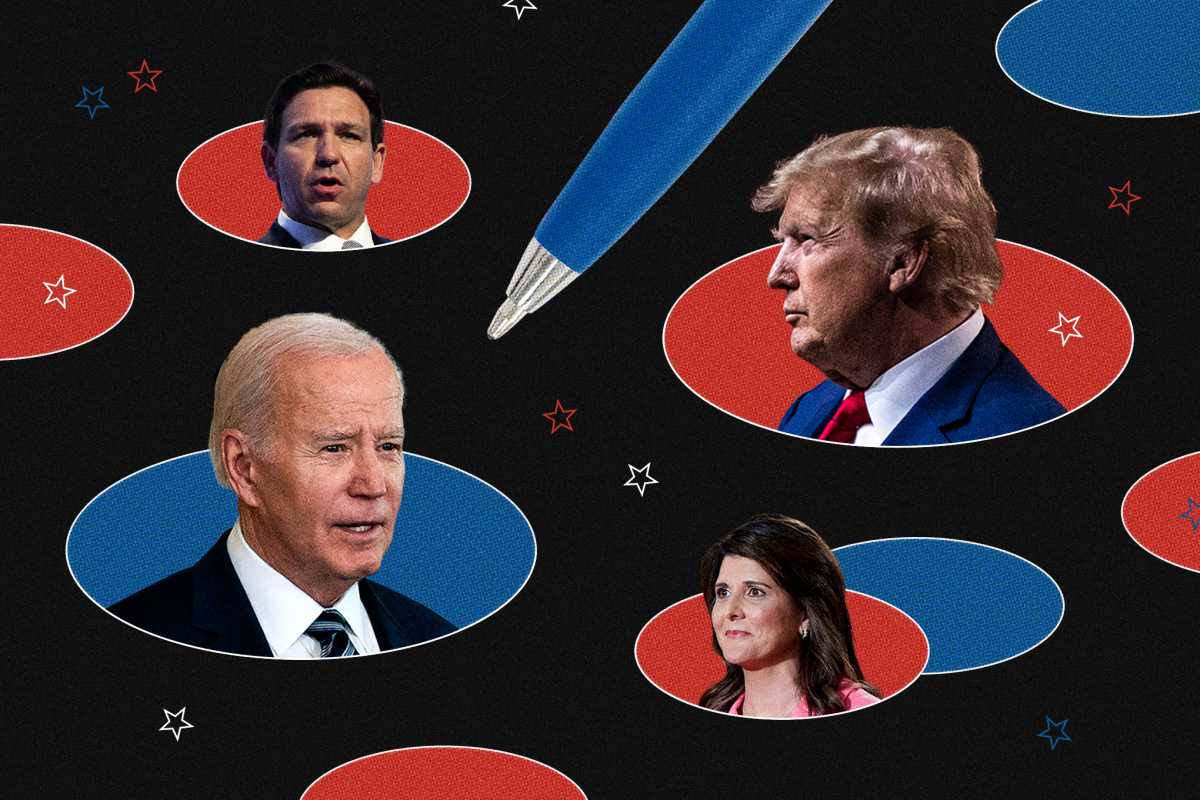Politics
Iowa Caucus: Republican Candidates Battle for Second Place as Trump Dominates

Republican presidential candidates on Monday headed out for a final, frigid day of campaigning in Iowa, where Donald Trump is the overwhelming favorite to stake an early claim to the party’s nomination.
The former president’s dominance has turned Iowa’s first-in-the-nation contest into a race for second place, as both Florida Governor DeSantis and former U.N. Ambassador Nikki Haley are aiming for a clear runner-up finish to emerge as the chief alternative to Trump.
“If you’re willing to brave the cold and turn out for me, I’ll be fighting for you for the next eight years, and we’re going to turn this country around,” DeSantis told a crowd in Sergeant Bluff.
A commanding win for Trump would bolster his argument that he is the only Republican candidate capable of taking on Democratic President Biden in the November election.
It would also spell trouble for his challengers, especially DeSantis, who has wagered his campaign on Monday’s caucus, pouring resources into the Midwestern state and barnstorming all of its 99 counties.
A third-place finish could prove fatal to DeSantis’ prospects. Polls show the Florida governor far behind Trump and Haley in the more moderate state of New Hampshire, where Republicans will choose their nominee eight days from now.
Both DeSantis and Haley have expressed confidence they will exceed expectations in Iowa, though neither has predicted victory.
At a diner in Des Moines, Haley predicted that other candidates will be forced to drop out in the weeks to come. “This will be a two-person race with me and Donald Trump,” she told supporters.
Unlike his rivals, Trump did not attend campaign events, relying instead on surrogates to rally his supporters.
“We know him, we trust him, and he’s the man that we need back in the White House,” Republican Representative Marjorie Taylor Greene said at a brewery in Fort Dodge. The life-threatening cold blanketing the Midwest forced the campaigns to cancel several events over the weekend and could dampen turnout on Monday.
Unlike a regular election, Iowa caucuses require voters to gather in person on Monday evening in small groups at churches, schools, and community centers, where they cast secret ballots after speeches from campaign representatives.
Iowa Republican Party Chair Jeff Kaufmann said on Sunday those speeches could play an outsized role this time because candidates had to cancel so many events due to the weather.
Caucus meetings will start at 7 p.m. CST (0100 GMT on Tuesday) and results are expected a few hours after that.
Another potential wild card: an unknown number of the state’s Democratic voters have registered as Republicans to try to influence the caucus results.
“I just want to be able to look back and say I did what I could to keep Donald Trump from getting elected,” said Toni Van Voorhis, 65, one such crossover voter, who plans to back Haley.
Iowa Democrats will hold caucuses of their own to conduct party business, but they will not vote on Monday for other presidential hopefuls because the party has reshuffled its nominating calendar to put states with more diverse populations first this year. They will cast their ballots by mail, with the results to be released in March.
The National Weather Service predicted the wind chill temperature could reach minus 45 degrees Fahrenheit (minus 43 degrees Celsius) in some parts of the state.
There was a record turnout at the 2016 Republican caucus, with about 187,000 votes cast, or approximately 29% of the state’s registered Republican voters. Republican turnout was closer to 18% in 2012.
Trump’s strong support may give him an edge if the freezing conditions convince some voters to stay home.
“Trump is proven to get things done,” said Austin Rasch, 30, a general contractor from Fort Dodge who predicted strong turnout. “It’s Iowa. We’re used to the cold.”
Iowa has historically played an outsized role in presidential campaigns due to its early spot on the campaign calendar.
But in 2008, 2012, and 2016 — the last three competitive races — the winner of Iowa’s Republican caucuses did not go on to secure the nomination.
Once a political battleground, the state is now seen as reliably Republican in presidential elections. Trump has maintained a decisive lead in national polls despite facing legal challenges, including state and federal prosecutions centered on his efforts to overturn his 2020 election loss to Biden, who will face the Republican nominee in November’s general election.
Trump has continued to claim falsely that Biden’s 2020 victory was the result of voter fraud.
Read Reuters‘ full U.S. election coverage here: [link]
Reporting by Tim Reid, Gabriella Borter, and Nathan Layne in Iowa. Writing by Andy Sullivan and Joseph Ax. Editing by Lisa Shumaker, Heather Timmons, and Matthew Lewis.












